Dr Diane Heath and I will be delighted to receive photos of your medieval animal ‘tile’ designs, so please do send them in and we will send out your certificate. Also we hope you enjoy eating your edible material culture, as well as enjoying the Virtual Canterbury Medieval Pageant at https://www.canterburybid.co.uk/canterbury-medieval-pageant/
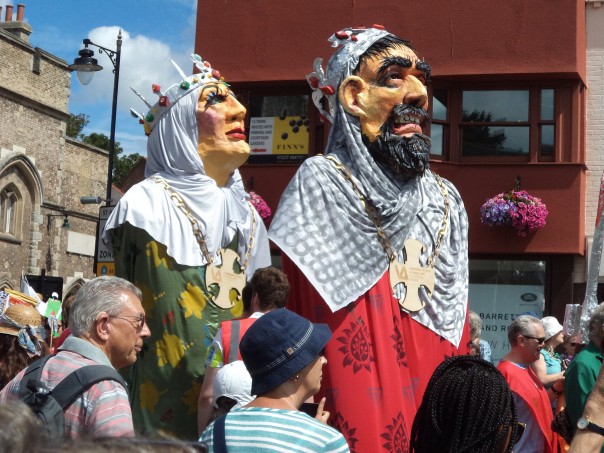
I want to remind you about a research opportunity for someone interested in Book History and Material Culture. Due to the generosity of a local benefactor, there is the chance for one student to complete a partly funded MA by Research using a unique Kent archive. The archive comprises an annotated leather-bound volume containing the handwritten ‘St Albans Court Inventory of Heirlooms’ for the will of William Oxenden Hammond (d.1903). This includes a substantial library collected in the eighteenth and early nineteenth centuries, which covers a very wide range of fascinating subjects. Annotations cover the period up to the auction of the library books in 1938 and the inventory also includes silver and plate, jewels, statues, objects of worth and paintings.
The successful applicant will be offered a bursary of £1000, with the possibility of applying for a further £1000 from the Ian Coulson Fund. If this sounds exciting and you would like to find out more about the opportunity, please do contact Dr Claire Bartram who will be one of the supervisors: claire.bartram@canterbury.ac.uk and some of you may remember Claire from an earlier report on her recent edited essay collection on book culture: https://blogs.canterbury.ac.uk/kenthistory/book-culture-and-kent-history-postgraduates/
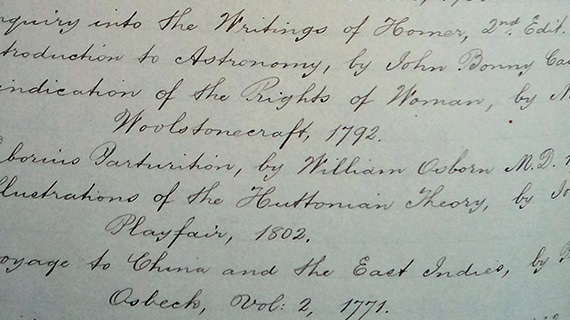
Before I come to the recent meeting of the Kent History Postgraduates group, I thought I would highlight the upcoming Virtual Postgraduate Open Evening on Wednesday 8 July 6 to 7.30pm where you can learn how you can study to give yourself the postgraduate edge for you CV, as a great way to develop expert skills and boost your career prospects. Also, current CCCU students can get a 20% discount and you can study a wide range of exciting postgraduate degrees. If this sounds interesting, do have a look at: https://blogs.canterbury.ac.uk/studentnews/virtual-postgraduate-evening-8-july/ and then ‘come along’ and ask the experts. If you want further details, please email the Graduate College at graduatecollege@canterbury.ac.uk
Now I want to bring you a short report on the research activities of the Kent History Postgraduates. Sadly, Lily Hawker-Yates and Kieron Hoyle were unable to join us this week. Lily because of family health problems, and we all wish her family well, and Kieron because she has an exceedingly heavy work schedule at present, although she is feeling much better after contracting the virus some weeks ago (as regular readers may remember).
This time Tracey started the ball rolling, and she has been busy organising her section on women and lay piety in terms of her east Kent noble families, especially the de Cornhelle family who comprise several Reginalds and Matildas – a frequent problem for such research is identifying which Reginald or Matilda you have when documents weren’t dated. She is particularly exploring the references in Thorne’s Chronicle of St Augustine’s Abbey at the moment, especially comparing Davis’ translation to the original text, which fortunately is now online through the Parker Library at Corpus Christi. She has also been in correspondence with Andrew Mayfield concerning the potential archaeological remains of the Lukedale chapel.
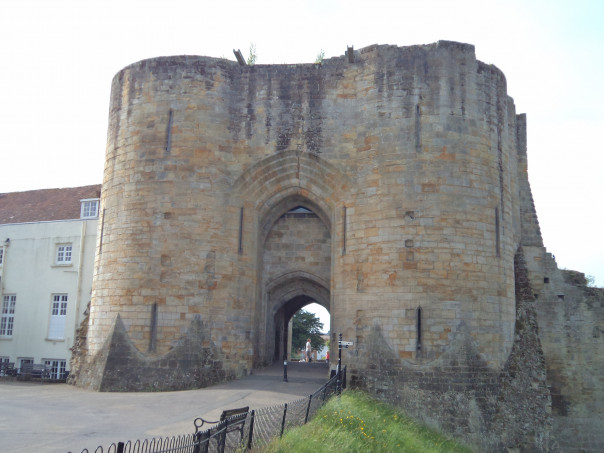
Maureen was next. Although still limited because of the closure of Staffordshire Record Office, she has finished translating the 1444/5 accounts and is in the process of analysing them in conjunction with the earlier sets of accounts she has. One finding so far is that Tonbridge was providing more in rents compared to 15 years before, which is interesting in that England was on the cusp of the mid-century depression. In addition, she has downloaded all the PCC wills she currently needs from TNA, and is turning her attention to the transcripts of extracts on the Kent Archaeology Society website because the registered copies for the Rochester Consistory Court are still unavailable – KHLC remains closed. Finally, she has started writing a piece on the origins of Tonbridge and the de Clare family in the post-Conquest period.
Turning to north-west Kent, Janet reported that she had just had her periodic review with her new supervisory team of Dr Andy Seaman and Dr Leonie Hicks. This had been helpful, and she is now turning her attention to mapping out her chapters to build the thesis’s structure. As well, she has been continuing to work on a section on parks and leisure, especially wildfowling that seems to have been a valuable aspect for the local landholders. Interestingly, part of this medieval hunting area is now a brown field site and many of the same bird species have again taken up residence. Thinking about surviving standing buildings in the area – the parish churches – Janet said she had been exploring how much 13th-century work these buildings still contain.
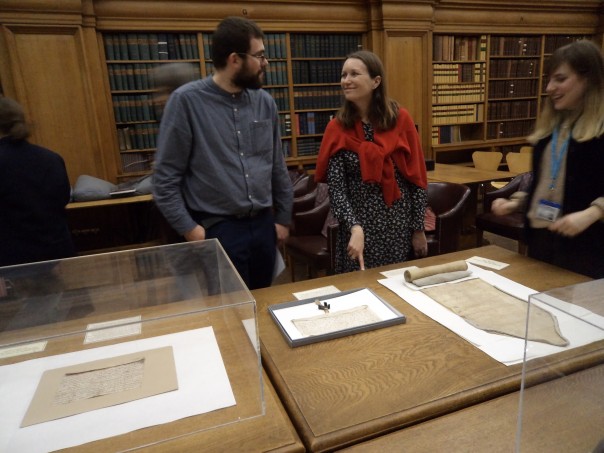
Dean has an article that has just come out in an essay collection entitled Accounts and Accountability in Late Medieval Europe and published by Brepols. For his doctoral thesis, he has been trying to work out the chronology of the taking of the Canterbury archa to Dover in late April 1264. This hangs on the movements of Gilbert de Clare, the siege of Rochester, the Lord Edward’s harrying of Tonbridge castle, and Gilbert’s response to this. Dean thinks he may have cracked it, so more next time.
Jane, although experiencing several health issues recently, has been able to do some work on the Tonbridge wills, as well as working through the preparatory material on the IHR website regarding the relational database course both she and Maureen had hoped to go on this summer – another casualty of COVID-19. However, because of her previous career when databases were complex card catalogues, she feels she understands the strategy behind it and is in the process of creating such a database using Access. Additionally, she has been exploring the presence of corrodians at other religious houses in the Rochester diocese because it is feasible there were similar individuals at Tonbridge priory.
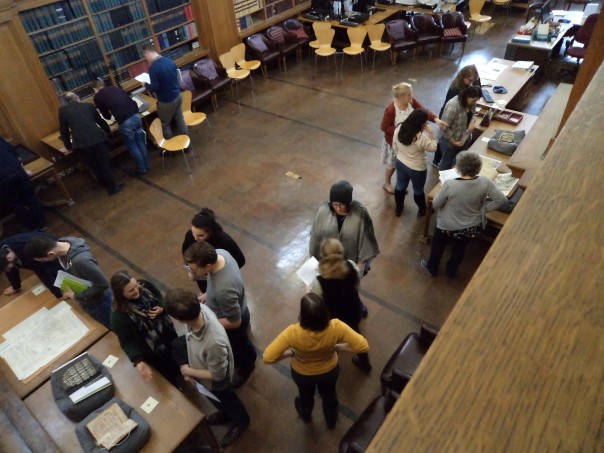
Peter was the final speaker and I was able to let him know that his MA thesis has now been uploaded to Research Space. Currently, he is heavily involved with matters surrounding the re-opening of parish churches, especially the dissemination of information and how to make this as inclusive as possible, something he feels passionately about. This sparked an interesting and lively discussion among everybody about how this might be done within a teaching environment, both physically and virtually. For it was recognised that this needs to take account of the different ways people distil information and thus how a range of ways of presentation can be used to help different groups and individuals, and that there is guidance on this if you know where to look.
So ended another fascinating meeting and the hope is that next time everyone will be able to make it, but the beauty of these sessions is that often in the meantime one or two people will be able to share information in response to the queries others have raised.
Finally, and something that illustrates the strength of the research community, Diane and I met up virtually with Louise and two of her former doctoral students. Dr Harriet Kersey now works at CCCU in the Department of Enterprise, Employability and Research Development and Dr Abby Armstrong is a Post-Doctoral Reseacher on the SFB933 ‘Materiale Texkulturen’ funded project at the University of Heidelberg. It was great to catch up with everybody, find out how they have been coping and learn about their plans, including Diane’s next books in her ‘Medieval Animals’ series with the University of Wales Press, Louise’s actual move to Lincoln tomorrow, Harriet’s purchase of a flat and Abby’s trip to TNA as soon as it opens sufficiently to make it a viable trip from Germany. So all in all this was a great way to finish the week.
 Centre for Kent History and Heritage
Centre for Kent History and Heritage Sheila Sweetinburgh
Sheila Sweetinburgh 1322
1322

